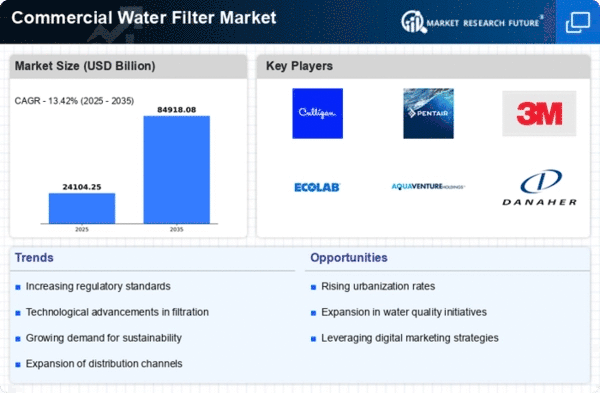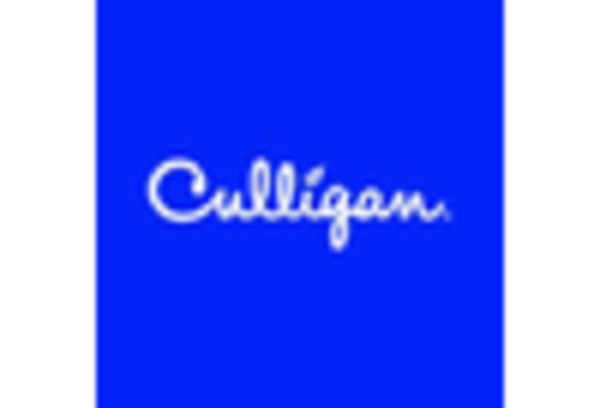Market Share
Commercial Water Filter Market Share Analysis
The commercial water filter market is very dynamic, and companies utilize different market share positioning strategies to gain a competitive advantage that responds to the unique needs of consumers. A common strategy is differentiation which involves focusing on enhancing unique characteristics or cutting-edge technologies to make their product stand out from the competition. This approach typically requires the financing of research and development to introduce new filtration technologies, which may include smart sensors, multi-stage purification systems or environmentally friendly materials. Companies seek to attract customers who focus on particular characteristics in water filtration systems by offering a unique value proposition. The other popular strategy is cost leadership, where companies aim at becoming the low-cost producer in a given market. This entails simplification of production processes, improving supply chains and bargaining profitable deals with suppliers. Reducing production costs allows companies to provide competitive prices for their products, thereby attracting a more significant market. This strategy works best in markets where price sensitivity is a major factor that influences the purchase process. However, the balance between cost reduction and having a quality product is essential so that the brand’s reputation does not suffer. The tactic of market segmentation is a process in which companies target particular groups based on their respective needs. Realizing the fact that different industries or areas require specific water quality parameters, companies manufacture filters accordingly. For example, water filtration demands for a health center may be dissimilar from what restaurateurs would require companies to tailor their products. The latter enables business to penetrate niche markets effectively and overcome the peculiarities faced by separate customer segments. Collaborative partnerships and alliances constitute another market share positioning pathway. Companies can enter into strategic alliances with other businesses within the supply chain or seek partner organizations that share their values. These partnerships may lead to synergies where companies gain a foothold in foreign markets, share resources or better match their filtration knowledge. Through using the strengths of several business entities, companies are able to strengthen their competitive position on the market. Companies can expand geographically as a way of increasing their market shares. This includes moving into new territories or countries in which there is unaddressed demand for commercial water filtration products. Tailoring products to meet specific regional needs is critical in understanding the local water quality challenges and regulatory environment.


















Leave a Comment